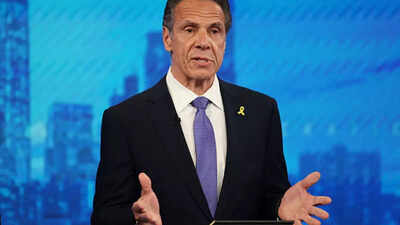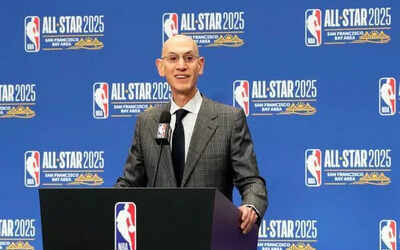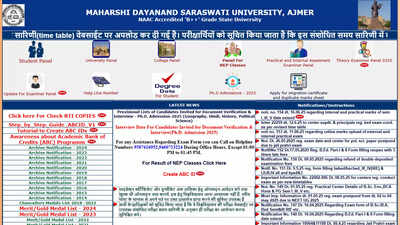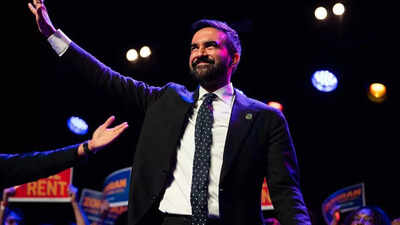Andrew Cuomo educational qualification and career path: How this law graduate rose to Albany and became New York governor

Andrew Cuomo, former New York Governor, lost the Democratic primary for New York City mayor to Zohran Mamdani on June 24, 2025, halting his political comeback. With 91% of votes counted, Mamdani led with 43% to Cuomo’s 36%. Cuomo, who qualified for an independent run on the “Fight and Deliver” ballot line, has not confirmed his next steps.Zohran Mamdani, a 33-year-old Indian-origin Muslim, emerged as a progressive star. Born in Kampala, Uganda, to Indian parents, he immigrated to New York at age seven. A state assemblyman since 2021, Mamdani’s campaign emphasized affordability, with proposals for free buses, rent freezes, and universal childcare. Endorsed by Bernie Sanders and Alexandria Ocasio-Cortez, his grassroots momentum outpaced Cuomo’s establishment support.Early education and family rootsBorn December 6, 1957, in Queens to Italian-American parents Mario and Matilda Cuomo, Andrew graduated from Archbishop Molloy High School in 1975. He earned a bachelor’s degree from Fordham University in 1979 and a Juris Doctor from Albany Law School in 1982. His political exposure began early, assisting his father, Mario, a three-term governor, in campaigns from his teens.Political career beginningsCuomo’s career ignited as his father’s 1982 gubernatorial campaign manager. After Mario’s win, Andrew served as a senior advisor, earning $1 annually. In 1984, he worked briefly as a Manhattan assistant district attorney and joined the law firm Blutrich, Falcone & Miller. In 1986, he founded the Housing Enterprise for the Less Privileged (HELP), a nonprofit tackling homelessness, which became a national model for transitional housing.Federal and state-level rolesFrom 1993 to 1997, Cuomo was Assistant Secretary at the U.S. Department of Housing and Urban Development (HUD) under President Bill Clinton, rising to HUD Secretary from 1997 to 2001. Back in New York, he lost the 2002 gubernatorial race but won as state attorney general from 2007 to 2010, targeting corruption and environmental violations. Elected governor in 2010, he served until 2021, resigning amid sexual misconduct allegations. His achievements included legalizing same-sex marriage, launching the Excelsior Scholarship for tuition-free college, and steering New York’s Covid-19 response.Mayoral campaign and election lossCuomo’s 2025 mayoral bid proposed a 25-point education reform plan, increased police presence, and affordability measures. Despite endorsements from Bill Clinton and Michael Bloomberg’s $8 million super PAC, Mamdani’s progressive coalition prevailed. Cuomo’s potential independent run could reshape the November 4, 2025, general election, challenging Mamdani, incumbent Eric Adams, and Republican Curtis Sliwa. His career reflects resilience, though controversies cloud his legacy.Future prospects and independent pathThough defeated in the primary, Cuomo remains eligible for an independent mayoral run under the “Fight and Deliver” line. His next move could significantly impact the 2025 general election, as his resilience continues to define his turbulent political legacy.





